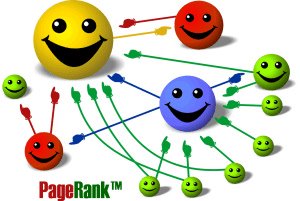Rank High in Google by SEO Authority
The latest word in Search Engine Optimization is “Authority.” Now Google is emphasizing websites with Authority. What it means is a web site is given Authority from other sites and from Google itself. There are 3 ways to obtain Authority.
1. Web 2.0
Everyone knows the Web 2.0 explosion. Socially oriented networking web sites, You Tube meant for video, blogging and also social bookmarking web sites. Using these type of web sites is the hottest way to increase the Authority that Google gives to your website.
2. Links
One giant determining factor in page rank is the number of links from web sites with high Google page ranks. As these links are one way inbound links they give your site authority. This is a prevailing statement that tells your website is high quality and good for them to link to you. Link exchange could be useful as long as you exchange with websites that have high ranks with Google. The more, value links your website has, the higher your page rank will become.
3. Content
Targeted content is necessary. First know what your target market is looking and provide a solution with your targeted key words. Your site must consist of minimum 250 words of content that is frequently updated. Google will spot your web site as a fresh resource for the keywords that you are targeting. This gives you upper hand over many sites that allow their information to become unrelated because they don’t update on a regular basis. This would give your website Authority in the eyes of Google.
The key to rank high in Google is SEO Authority. A well developed marketing campaign that fully use socially oriented websites, highly ranking inbound links and fresh website content is bound to be extremely profitable.
Site issues sensed by Google Toolbar
404 errors with default error pages
When a user tries to open your site with an invalid URL and your server returns a short, default error message, the Toolbar will recommend an alternate URL to the user. If this is a common problem in your site, you will see these URLs in the crawl errors section listing of your Webmaster Tools account.
If you want to set up a custom error page, ensure it returns end result code 404. The content of the 404 page can assist your users to recognize that they tried to reach a missing page and give suggestions regarding how to get the content they were looking for. When a site shows a custom error page the Toolbar will no longer offer suggestions for that site. You can verify the behavior of the Toolbar by visiting an invalid URL on your site with the Google Toolbar installed.
DNS errors
When a URL holds a non-existent domain name (like www.google.cmo), the Toolbar will recommend an alternate, similar looking URL with a valid domain name.
Connection failures
When your server is inaccessible, the Google Toolbar will automatically show a link to the cached type of your page. This attribute is only available when Google is not explicitly banned from caching your pages through use of a robots Meta tag or crawling is blocked on the page through the robots.txt file. If your server is frequently unreachable, you will possibly want to fix that first; but it may also be a good plan to check the Google cache for your pages by looking at the search outcome for your site.
How important is Google PageRank?
 Don’t try to obsess over your Google PageRank – it is just one of the factors in the collective algorithm that Google uses to put up SERPs. Though having lots of relevant, inbound high PageRank links is a fine thing, high PR does not guarantee high placement in SERPs.
Don’t try to obsess over your Google PageRank – it is just one of the factors in the collective algorithm that Google uses to put up SERPs. Though having lots of relevant, inbound high PageRank links is a fine thing, high PR does not guarantee high placement in SERPs.
Bear in mind that Google will calculate your PR based on the page criteria and the title tag of the linking page. Google can penalize if it detects a large number of irrelevant links in a site. How effective is Google in determining link relevance is a subject of discuss among SEOs. However, building related links is a good rule of thumb so as to follow if you want to boost your site’s PR.




